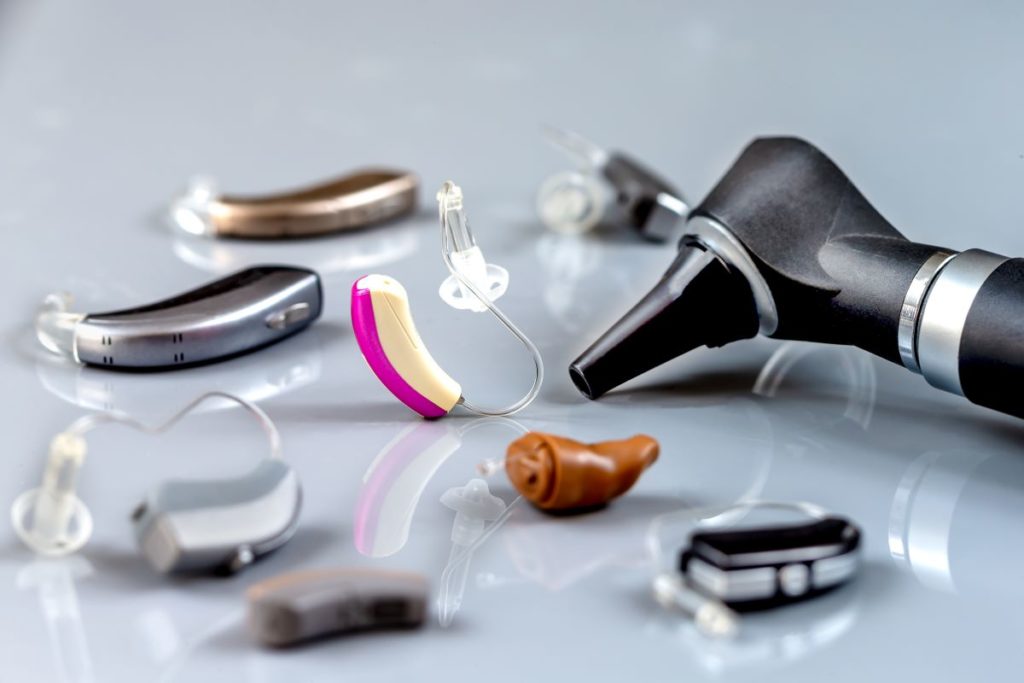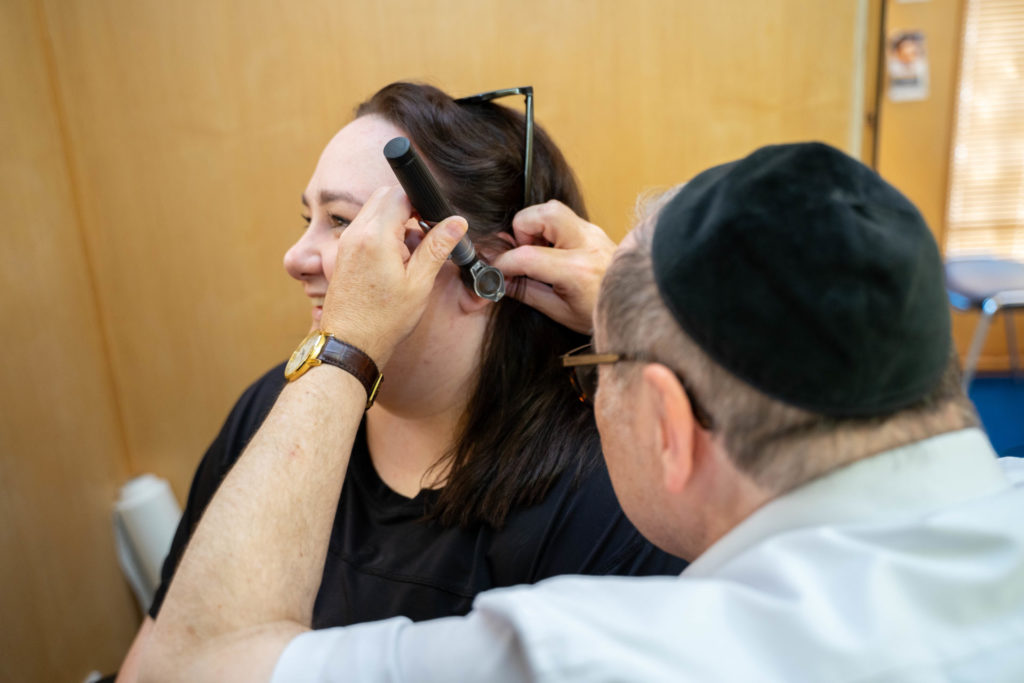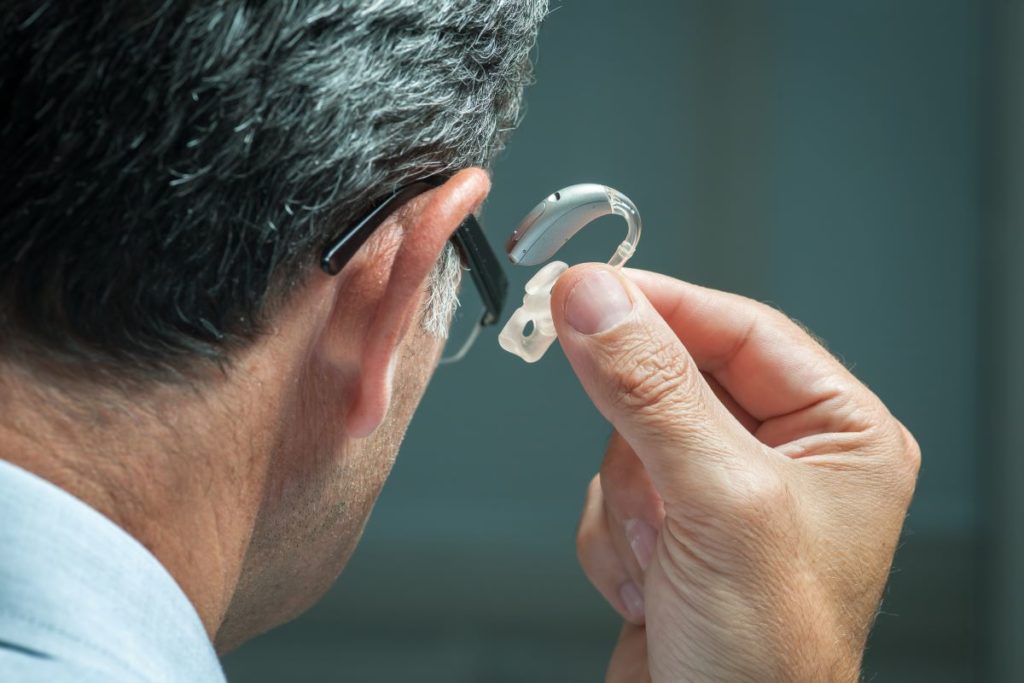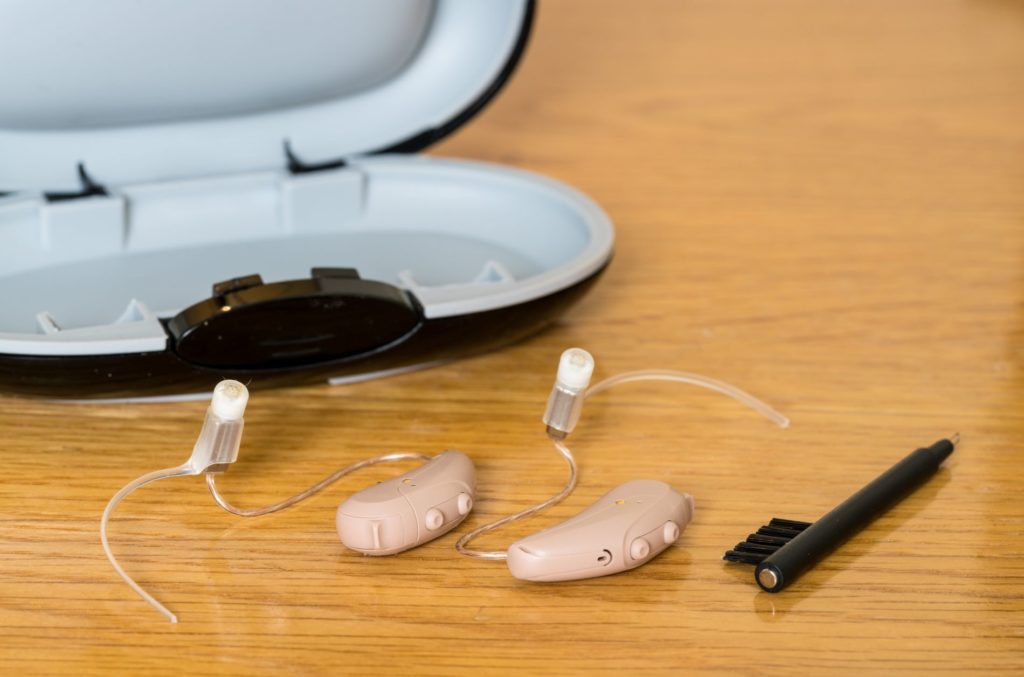New hearing aid user? Don’t make these common mistakes
Wearing a hearing aid for the first time can be slightly unnerving, but just know that you’ve taken a huge step towards improving your quality of life that will benefit you greatly in the long run.
Hearing aids are a great tool to help significantly reduce the impact of hearing loss on your day-to-day life. With so much technology integrated into today’s modern devices, they offer a wealth of powerful features that can help to keep you connected with everything around you. However, this can also create challenges for those using them for the first time.
As with most things, hearing aids need an adjustment period to help you settle into them and this can sometimes take a few months. However, to speed up the process and help you to enjoy living with your device right away, we’re here to make you aware of the most common hearing aid mistakes that users make, so you can avoid them.
1. Not choosing the right hearing aid
Hearing aid selection starts with ensuring that the device is perfectly suited to your needs. There’s no one-size-fits-all approach when it comes to hearing aids and there are several different types available, catering to specific hearing requirements.
For example, behind-the-ear (BTE) hearing aids are typically prescribed for those with mild to severe hearing loss, whereas in-the-ear (ITE) hearing aids are more suitable for those with more profound hearing loss.
Along with the different types of hearing aids, there are hundreds of different models and styles of devices available. Hearing aid manufacturers produce several ranges of different style hearing aids with varying options in technology and colours, and some are more discreet than others. Choosing a hearing aid can be a minefield and it’s a decision that shouldn’t be made without professional help – which brings us to our next mistake.

2. Not getting a professional hearing assessment
It goes without saying that the best way to find the correct hearing aid for you is to undergo a hearing assessment with a professional audiologist first. Hearing tests are the only way to thoroughly assess your hearing quality and therefore determine the type and severity of your hearing loss.
In the same way that you wouldn’t purchase glasses without having an eye test first, a hearing test is a crucial step in the process. Not getting a professional diagnosis can lead to purchasing the wrong hearing aid and not getting the correct treatment.
This is why it’s crucial to seek the help of a private audiologist when you’re struggling with your hearing, as opposed to purchasing online or taking any alternative routes. Hearing aids are so unique and individual to the wearer that a personalised assessment is a must. Without the right hearing aid, you won’t reap the benefits.
If you’re struggling with your hearing and think you may need hearing aids, get in touch with us. We offer private, professional hearing tests across North London and can devise the most suitable solution tailored to you.
3. Not being honest about your hearing abilities
This one may sound slightly out of the ordinary, but it can happen. As part of a hearing test, an audiologist will typically ask questions about your hearing experiences and your lifestyle. This is so that we can gauge a good understanding of how you’re struggling, and what you’re struggling with the most.
Read more: What to expect from your hearing test consultation
The answers to these questions along with the data from the diagnostic tests will help to paint a clearer picture of your hearing loss and ensure the audiologist can recommend the most suitable hearing aid that will work best for you and fit in with your lifestyle.
Therefore, it’s imperative that you’re 100% honest in your hearing assessment, and don’t try to downplay how you’re feeling – it’s what will give you the best chance of getting the most effective hearing aid.

4. Not taking the time to understand the hearing aid’s features
Spending a little time learning all about what your new hearing aid can and can’t do at the beginning is possibly one of our most important pieces of advice. Hearing aids are small but powerful devices that have the ability to perform various functions, but only if you know how to operate them.
Start by understanding how your hearing aid works and discovering all of its features. Depending on the model you’ve chosen, you may be able to connect Bluetooth devices such as your phone or TV to it, or it may have special noise enhancement functions that transform your hearing experience when you go from a noisy environment to a one-on-one conversation.
Hearing aids have come on leaps and bounds from simply being able to raise and lower the volume, so take some time to practice using its features and really try to get the most out of it.
Here at Nathan Gluck Hearing Care, we take the time to talk you through your hearing aid at your fitting appointment and ensure that you walk away knowing everything you need to know about your device. After that, we’re always here for any questions you may have.
5. Expecting an instant hearing transformation
It’s not unusual for new hearing aid wearers to expect their hearing to be seamless from day one of wearing their device. Unfortunately, this is not always the case and can often leave some slightly disappointed.
It’s important to be aware that there is an adjustment period needed before you’ll feel completely comfortable with your new hearing aid. You’ll have to trial different settings and practice using them in different environments and when communicating with different people.
The first few hearing aid uses can sometimes be a little disorientating as your perception of sound can change and voices may sound different. However, it won’t be too long before you feel entirely settled into the new sensations you’re hearing so it’s important to stay patient and take it at your own pace.
6. Not wearing the hearing aid consistently
Following on from the previous point, a successful adjustment period requires you to wear your hearing aids consistently to get the full benefit.
It may be tempting to remove your hearing aid in noisy or uncomfortable environments, but it can hinder your progress and elongate the time it takes you to settle into the device.
If you’re really struggling to get to grips with your hearing aid, try gradually increasing the length of time you wear it each day until it becomes a part of your regular routine.

7. Not protecting the hearing aid
Hearing aids are designed to be powerful and robust to a certain degree, but they are also small and delicate devices that can easily become damaged and therefore require a great deal of care.
Avoid exposing your hearing aid to excessive moisture, extreme temperatures or sudden impact to avoid any damage. This means also removing it before swimming, showering or taking part in any activities that may make it susceptible to damage.
If you frequently engage in physical activities, consider using a hearing aid cover or clip to keep it safe and secure.
8. Neglecting hearing aid maintenance
Protection is one thing and maintenance is another, but they are both equally as important. Hearing aids require regular cleaning in order to function effectively and ensure they are delivering the best possible performance.
As the device sits in your ear, it can easily accumulate ear wax, dust and external debris which can lead to clogging and decreased performance. Follow the manufacturer’s instructions for regularly cleaning your device and keep on top of this maintenance procedure.
If you’re unsure, stick to cleaning it using a soft, dry cloth and be sure to remove the batteries beforehand.

9. Not communicating with your audiologist
Audiologists are there to make your hearing care journey run as smoothly as possible, so it’s important that you continue to communicate with them and raise any concerns you may have.
After your initial hearing aid fitting, attending regular aftercare or follow-up appointments is essential to making sure that you’re making the progress you should be. Your audiologist will be able to determine if your device is still serving your current hearing needs and make any necessary adjustments if this isn’t the case. Similarly, if you suspect something might be wrong, get in touch with them straight away.
Here at Nathan Gluck Hearing Care, patient care is our utmost priority. We encourage all of our patients to stay in touch with us and attend their regular appointments so we can see how they’re doing and provide additional help in any way that we can.
If you’re looking for a reputable and trustworthy audiologist in North London that truly cares about their patient’s hearing needs, get in touch with us.
Get in touch
If you’re concerned you may have a problem with your hearing, or you’d like to arrange a hearing test for a family member, we’re here to help.
Nathan Gluck Hearing Care,
20 Wentworth Road,
Golders Green, London,
NW11 0RP, UK